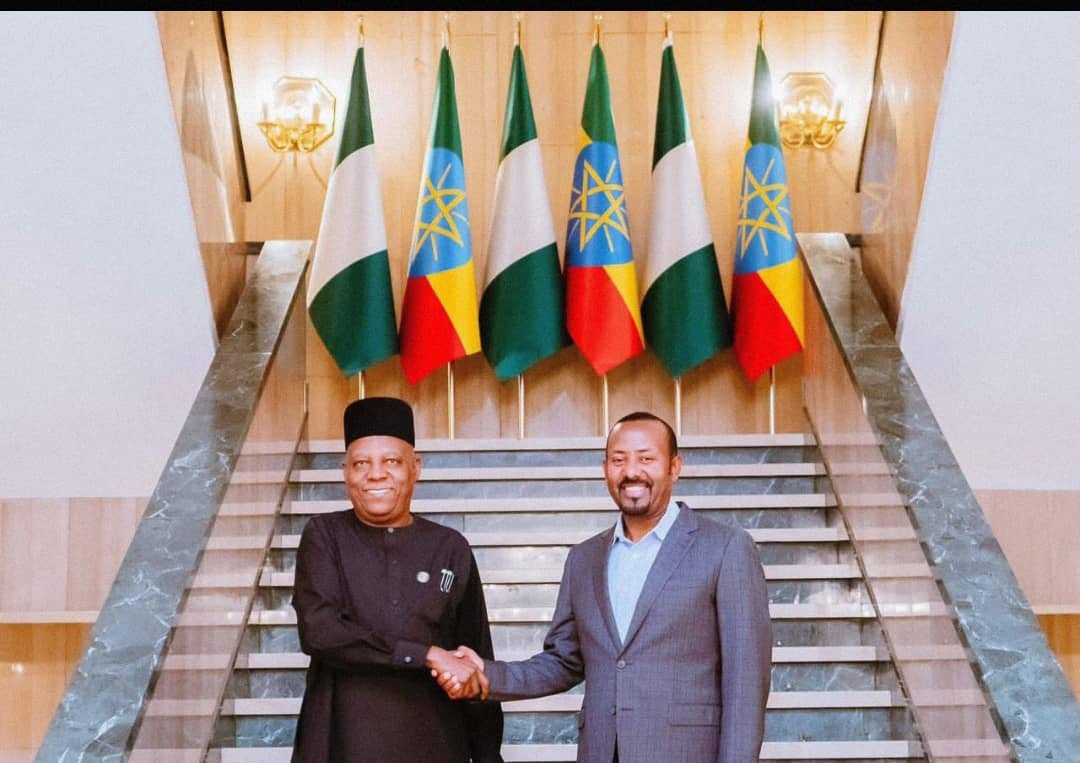
Climate Change: Nigeria, Ethiopia Must Lead Africa’s Response – Shettima
By Ahmed Isah
Vice President Kashim Shettima has called for intensified climate action across Africa, stressing that Nigeria and Ethiopia must take the lead in driving adaptation and mitigation strategies to safeguard the continent’s future.
Speaking on Friday in Addis Ababa at a high-level regional engagement, Shettima said Nigeria remains committed to working closely with other African nations to confront the existential threat posed by climate change.
He noted that with Nigeria and Ethiopia being the two most populous countries in Africa, both nations hold the greatest stake in the continent’s climate resilience.
“This is not just statistical — it is existential,” the Vice President said. “It means more of our people are vulnerable to the dangers of climate change, and we also bear the highest cost of inaction.”
Shettima warned that Africa could no longer afford to be a bystander in the global climate discourse, urging countries to double their adaptation and mitigation efforts as a matter of urgency.
“This is why we are not mere spectators in this fight,” he stated. “We are partners, we are participants, and we are prepared to play our part to keep Africa clean and build a great environmental legacy.”
The Vice President described climate change as a defining challenge of the 21st century, calling on African leaders to adopt bold policies that would protect lives, livelihoods, and ecosystems.
While commending Ethiopia’s environmental efforts, Shettima expressed Nigeria’s readiness to collaborate on joint initiatives aimed at reducing carbon emissions, enhancing climate-smart agriculture, and supporting green innovations across the region.
He also conveyed the goodwill of President Bola Tinubu and the people of Nigeria to the Ethiopian Government, describing their recent national gains as a victory for the continent.
“We salute every visionary who has made this progress possible. Nigeria stands with you — in spirit, in purpose, and in action,” he said.
Independent News Reporters reports that the event was part of a broader conversation on Africa’s climate vulnerability and the need for homegrown solutions to safeguard the future of the continent.


